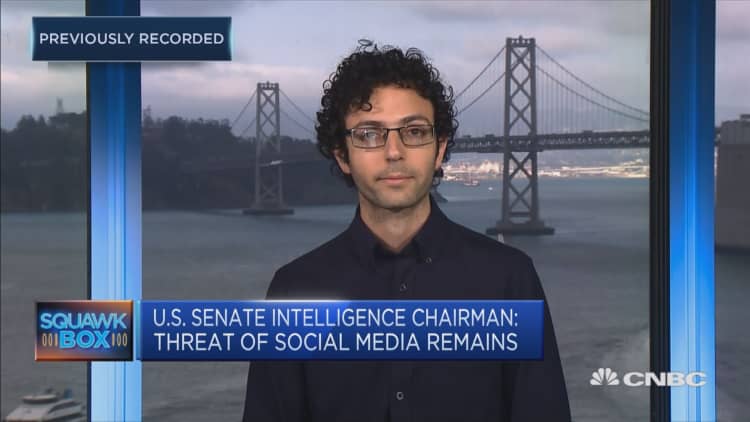Tony Hall, the director-general of the BBC, has urged journalists and editors to tackle any suggestion that his and other news organizations are responsible for "fake news," and revealed the corporation's plans for tackling it.
In an address given to the U.K.-based Society of Editors earlier this week, Hall called the term "the weapon of choice for repressive regimes everywhere," after the term "fake news" went mainstream during the 2016 presidential election campaign.
Fake news is the modern phenomenon of deliberate falsehoods or fiction masked as news circulating on the internet. The term has been "used by the Kremlin to dismiss the Salisbury Novichok attacks, and by powerful lobbies who counter objective facts with the assertion that they're all made up," he said, according to a transcript of his speech on the BBC's website.
"The fake news tag has given street cred to mass disbelief. That doesn't just threaten journalism everywhere. It threatens people everywhere," Hall added. He said that so-called fake news originated in a small town in Macedonia, where online stories were made up, before the term went mainstream during the 2016 U.S. presidential election.

Since Donald Trump became president, he has repeatedly attacked U.S. media when publications run stories that he sees as being overly negative towards him. At rallies and on Twitter, the president often blasts fake news as a destabilizing force in his presidency. In August, more than 300 U.S. newspapers ran editorials promoting press freedom to counter the president's attacks.
"To many journalists watching the early stages of the presidential race it might have seemed like an act of desperation to dismiss palpably accurate stories from some of America's most reliable media as being complete fabrications," Hall stated. "But constant repetition of the slogan over — and over — and over again — worked."
Hall announced that the British broadcaster had started a program with schools to educate pupils about how to spot fake news, as well as organizing an event where teenagers from London, Delhi and Nairobi will work to stop its spread. Hall also said he wants the BBC to extend the work of its "reality check" fact-checking teams and will use more data and evidence to explain why something has happened.
"We need to do everything we can to combat any suggestion that we peddle fake news," Hall urged news organizations. While occasional mistakes do happen, they are not the same as fake news, he said.
Social networking sites such as Facebook have moved to take down false information designed to incite violence, and in July removed fake accounts that were attempting to interfere with the midterm elections next month.

